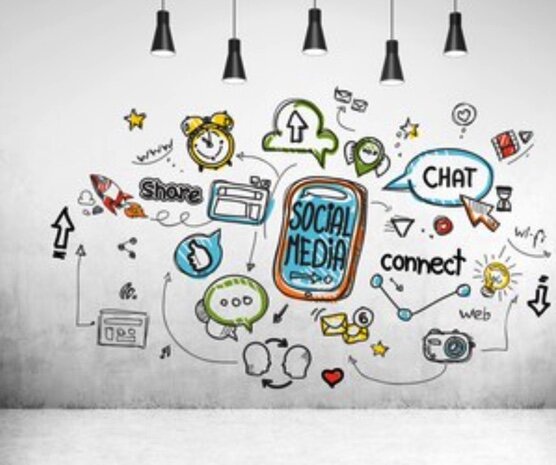This week we’re mixing things up a bit and taking a look at a slightly different topic. but one that’s relevancy grows over the years.
Whilst the media can provide endless hours of entertainment as well as news, it can prove to have a dark side. Some of us forget that these stories we’re reading merely to entertain and distract ourselves from our own lives, are about real people, with real feelings and emotions.
The media can all too often forget about how negative press and intrusive stories can affect a person’s mental well-being, and there can be a lack of consideration for how mental health is portrayed in the news.
It tends to start with media outlets wanting the most clickbait-worthy stories gracing the front pages, doing everything in their power to draw readers in, even if what they’re writing may not be 100% accurate.
This is the damage caused by sensationalist media, and ‘has been implicated in the rapid spread of rumour and misinformation online’, (Chen, Conroy, Rubin:15-19). Stories are exaggerated, people are made to look worse than they are and then come under the scrutiny of the public, who are left to judge.
This not only goes against a journalists duty to report truthful and accurate news, but leaves celebrities feeling used and deceived. Well, if you’ve read one of my previous blog posts *ahem* you’ll know my views on sensationalist media.
This issue was sadly brought into light when Caroline Flack took her own life in February 2020, after being bombarded by the media as she battled a court case.
For the public, a court battle is a private affair for a person or family to deal with, and it may get news coverage but that would be based on neutral grounds and would simply state facts. However, when it’s someone well know, it’s very different.
She was under intense press scrutiny for around six months before she passed away due to an ongoing case regarding an incident with her boyfriend- something that was never our business to begin with, people forget.
An event that occurs in the privacy of someone’s house involving personal matters and issues is not something that should be spread blatantly across the front pages and morning headlines
A Guardian analysis showed that the Sun published the most articles about her, with a quarter of them taking a negative tone as they included graphic references to her alleged assault.
However, it is hard to say for sure if the attention she received from the media and the negative press was to blame. There’s no denying that it didn’t help, and may have been the final straw, but the probability is that it can’t bear the sole blame.
A lot can build up in a persons life that drives them to a place of such sadness and despair that we never truly know the reasons behind such tragic event. Even if the media aren’t solely to blame, they didn’t aide the situation. They were yet another weight mounting on her mind.
Yes, the press should be allowed to publish that which is in the publics interest, but not when it is something which risks causing damage to someone mentally and lead them to such a dark place. It is a clear indication as to how one may be affected by a story, due to how they’ve been portrayed in the media.
Vilifying a person of half-truths and hurtful lies causes detrimental damage to a persons wellbeing, and surprise surprise, celebrities are people too!
The lesson that the media can take from this is to only publish facts, not speculation. Think about what damage a story can cause to a person, who may be vulnerable. Celebrities aren’t invincible, no matter what we think, they are still people, who can be left hurt by what is written about them. The ‘Be Kind’ message shared on social media after Caroline’s death is an important one, and the media should work on being fair and accurate, not just click-bait central.
It seems, however, that as time has gone on the media still hasn’t learned (will it ever?).
The Jonny Depp and Amber Heard court case has produced an uproar of outrage from many, after the UK courts declared him guilty of being a “wife-beater”. He was slandered all over the front pages of newspapers for allegedly abusing his ex-wife, with a media circus causing chaos outside the courts throughout the trial.
Now it can only be judged through assumption that Depp’s state may be different to Flack’s, but how are any of us to know? Why when it comes to reporting we don’t just dictate the facts in which the publics interest lies and leave everyone to decipher it and judge for themselves how they feel?
Turning such a large audience against one person, especially before hard-evidence and facts are confirmed, is a perilous action that can result in the downfall of said person.






